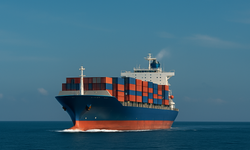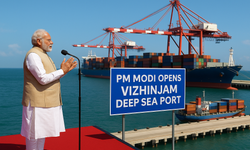The World Shipping Council (WSC) is urging the U.S. Trade Representative (USTR) to reconsider newly proposed port tariffs on Chinese-built ships. While the USTR argues that these import tariffs are aimed at boosting the U.S. shipbuilding industry and reducing reliance on foreign ship construction, the WSC warns that the policy could increase shipping costs, harm American exporters, and disrupt international trade flows.
A major concern is the retroactive application of the tariffs, which would affect ships already in operation. The WSC says this offers no real benefit to future U.S. maritime manufacturing and could interrupt current trade agreements and logistics operations.
Another issue is the tariff calculation method, based on net tonnage, which may unfairly penalize larger and energy-efficient cargo ships. This could result in higher import costs for agricultural products, manufacturing inputs, and other essential goods, driving up consumer prices.
The WSC also highlights the impact on automobile shipping, with added fees based on car equivalent unit (CEU) capacity. This could lead to rising vehicle prices in the U.S. without delivering significant gains to the domestic shipyard sector. Additionally, the council questions the legal basis of the tariffs under U.S. trade law, warning they may prompt retaliatory trade actions from key global partners.
Chinese shipping giant COSCO has also criticized the move, saying it undermines fair competition and threatens the stability of the global shipping industry. Industry analysts echo these concerns, pointing to potential supply chain delays, freight rate increases, and longer delivery times.
Instead of sweeping tariffs, the WSC recommends strategic solutions to revitalize the U.S. maritime industry—such as targeted investment incentives for American shipbuilders, port infrastructure upgrades, and regulatory improvements to attract private investment and technological innovation. These steps, they argue, can strengthen the domestic shipping sector without hurting trade competitiveness or consumer welfare.







